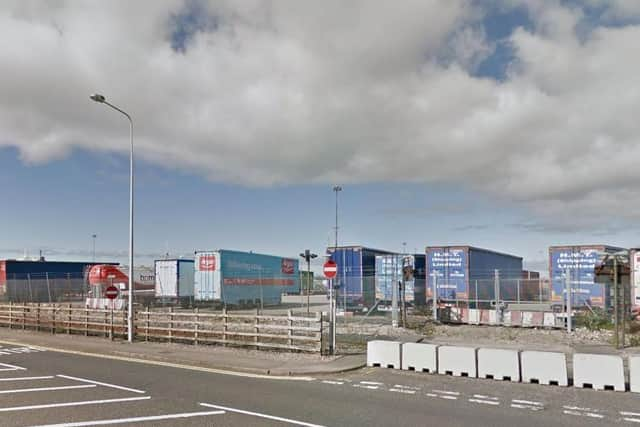Heysham Port closed off as fire crews tackle serious toxic chemical leak on tanker
and live on Freeview channel 276
Fire crews in hazmat suits are dealing with a spill of nitric acid which leaked from a tanker in dry dock at around 5am.
Ambulance crews are at the scene on standby, but no injuries have been reported.
Advertisement
Hide AdAdvertisement
Hide AdPolice have blocked access to Heysham Port from Port Way and lorries heading for the port are being 'stacked' on Princess Alexandra Way bypass until it is deemed safe to enter.
At around 9.30am, firefighters wearing gas tight suits managed to isolate the leak on the tanker and crews are now working with port and haulage officials to tidy up the spillage.
Lancashire Fire and Rescue Service said it will begin reducing its resources at the port by lunch time.
"The small leak involves a tanker containing nitric acid on land. We have firefighters now accessing the vehicle in gas tight suits to assess the situation. Port Way at the port is currently closed to all vehicles.


Advertisement
Hide AdAdvertisement
Hide Ad"We have ambulance crews at the scene on standby in case our crews need them but there are no injuries."
People living close to the port had been advised to stay inside and keep their windows and doors shut due to the toxicity of the chemical.
But the fire service has since confirmed that the leak has been isolated and the precautions are no longer necessary. It said the incident does not pose a risk to people's health in the local community.
Comment Guidelines
National World encourages reader discussion on our stories. User feedback, insights and back-and-forth exchanges add a rich layer of context to reporting. Please review our Community Guidelines before commenting.